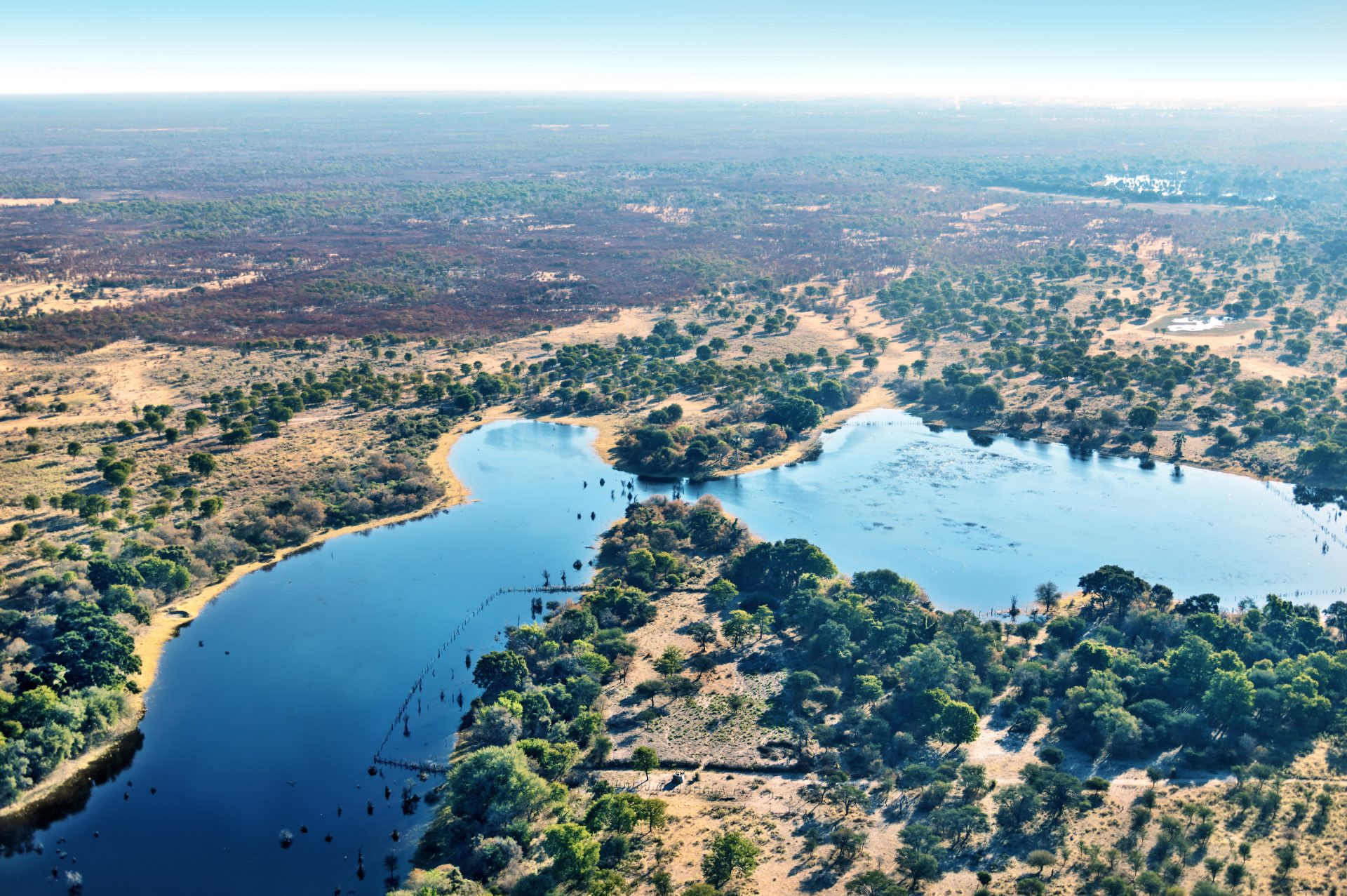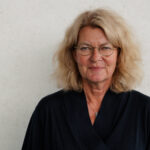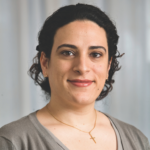heading
PROJECT: INTERNATIONAL CENTRE FOR WATER COOPERATIONAbout ICWC
The International Centre for Water Cooperation (ICWC) is part of the UNESCO International Hydrological Programme’s Category 2 Centres family, with 39 centres focusing on water.
It is the only UNESCO Centre located in Sweden and the first devoted to issues of transboundary water management in connection with peace, conflict, and regional development.
The Centre operates on the basis of a tripartite agreement between the Government of Sweden, UNESCO and SIWI. Human resources carrying out activities are sourced from SIWI staff. They work in cooperation with partners from regions, other international knowledge institutes and academia.
ICWC was established in 2014 as an independent research institution through a tripartite agreement between UNESCO, the government of Sweden and SIWI.
An important part of ICWC is the Research School for International Cooperation, hosted by the Department of Peace and Conflict Research at Uppsala University. The research school provides in-depth research on water cooperation with a primary focus on water for peace and development.
ICWC is governed by an international Board consisting of eight representatives from academia, governments, and civil society.
Vision
The International Centre for Water Cooperation envisions a world where water is peacefully shared, used and protected for the well-being of people, society, and nature.
Mission
The International Centre for Water Cooperation’s mission is to generate and share knowledge on the state, trends, and benefits of water cooperation and strengthen capacity of technical and political actors for increased cooperation on shared waters.
Objectives
The long-term goal of ICWC is to contribute to the implementation of the 2030 Agenda for support of economic development and welfare of developing countries.
The intermediate goal is to contribute to the implementation of the ninth phase of the UNESCO Intergovernmental Hydrological Programme (IHP-IX), covering 2022-2029.
All the 17 sustainable development goals (SDGs) of the 2030 Agenda are partly or fully underpinned by the need for good water governance. However, for ICWC the long-term goal focuses particularly on SDG 6 (Clean water and sanitation), SDG 13 (Climate action), and SDG 16 (Peace, justice and strong institutions).
The objective for ICWC is to contribute to sustainable governance and management of shared water resources by improving cooperation on such resources. The objective constitutes the common ground between the Centre and SIWI’s programmatic objective on shared water governance. The results of the ICWC will also contribute to SIWI’s vision of a water-wise world.
The work towards achieving the objective builds on two groups of strategic activities with the intention to develop and advance knowledge on transboundary water cooperation through carrying out own research and through compilation of existing research results. The knowledge produced and compiled will form basis for capacity building and policy support of target audiences.
Strategic activities
- Develop knowledge related to the sustainable management of transboundary waters and the role of such resources as drivers of cooperation between countries.
- Inform and enhance capacities of targeted audiences on the basis of research accomplished by developing knowledge products such as books, articles, policy proposals and training programmes and linking research and policy spheres.
Theory of Change
The ICWC Theory of Change outlines anticipated positive linkages between generation and dissemination of knowledge on water cooperation. When this knowledge is used to support capacity building of technical and political actors it will help pave the way for informed decisions, increasing the willingness and ability to cooperate on shared waters for the benefit of socio-economic development.
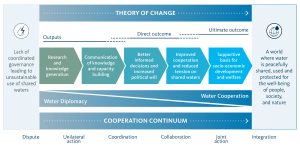
As part of the theory, ICWC anticipates that a target audience who is well equipped with knowledge on sustainable management of shared water resources is more likely to make decisions towards sustainable governance of such resources. Anticipated outcomes will be improved water cooperation, which may lead to less conflict and tension, with positive effects both at national and regional levels. Improved governance of shared water resources will in turn contribute to more effective implementation of the 2030 Agenda as well as economic development and welfare of developing countries.
Governing Board members
Helena Thybell, Executive Director, SIWI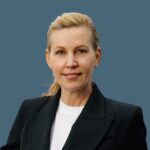
With a strong background in senior leadership roles across international organizations, Thybell has worked extensively in sustainability, business development, societal challenges, leadership, and human rights. Her core expertise includes driving organizational capability, fostering leadership, and delivering strong business results in complex and uncertain environments.
Karin Stenson, Ministry of Culture
Karin Stenson is the Swedish Government Representative in the ICWC Board. She holds a Masters Degree in Human Rights and International Relations from Malmö University. Karin was previously the deputy Secretary-General at the Swedish National Commission for UNESCO and has a vast experience in working with UNESCO and other UN bodies. Karin is fluent in Swedish, English and French and lives in Stockholm, Sweden.
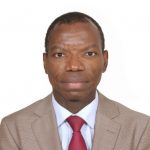 Dr Abou Amani, Director, Division of Water Sciences, UNESCO
Dr Abou Amani, Director, Division of Water Sciences, UNESCO
Dr Amani is the Director of the Division of Water Sciences at UNESCO, based in Paris. He is also Secretary of the Intergovernmental Hydrological Programme (IHP). Dr Amani is a civil engineer and graduate from the Ecole Polytechnic of Thies in Senegal (1990). He holds a PhD on civil engineering with focus on hydrology and water resources from Polytechnic of Montreal in Canada (1995). He also holds the title of “Maitre de recherche” which is equivalent to senior researcher or Associate Professor, granted by CAMES (African Higher Education Council). He joined UNESCO in 2006, first as a Science Programme Specialist in Accra, Ghana. He was later in charge of IHP for the Sub-Saharan Africa based in Nairobi. Consequently, he moved to the headquarters in Paris as Chief of Section on hydrological systems and water scarcity within the Division of water sciences, and then Chief of Executive Office of the Natural Sciences Sector. Before joining UNESCO, he worked at AGRHYMET regional centre in Niamey as a regional hydrologist, Head of Water unit and Scientific Coordinator. He worked for three years at the Institute of Research for Development as a researcher and visiting scientist. He has been a member and contributor of various committees, initiatives and panels among others: World Water Council), IPCC and World Water Development Report. He has many years of research and teaching, and he is the author of over 50 scientific papers.
Dr Joakim Palme, Vice-Rector at Uppsala University and Professor at the Department of Government
Joakim Palme is the Vice-Rector for Humanities and Social Sciences at Uppsala University. He is also Professor Political Science at the Department of Government. He is the Chairman of the Migration Studies Delegation and the Swedish Research Council on Health, Working Life and Welfare. Dr Palme undertakes comparative studies about welfare states and migration policy as well as climate policy. His most recent publications includes analyses of the interplay between social and climate policies, and the development of international conventions on social insurance.
Eng. Coletha Uwineza Ruhamya, Deputy Executive Secretary,
Lake Victoria Basin Commission, LVBC
Ruhamya is the Deputy Executive Secretary of the Lake Victoria Basin Commission (LVBC)- East African Community (EAC) based in Kisumu – Kenya. Eng. Ruhamya is an Environmental Engineer holding Master of Science in Engineering, graduated at University of the Witwatersrand (wits), Republic of South Africa (2003). She also holds Post Graduate Diploma in Environmental Management Toward Sustainable Development from Maastricht School of Management (msm), the Netherlands (2005). Prior joining EAC-LVBC, Eng Ruhamya was the Director General of Rwanda Environment Management Authority (REMA) (2012-2020); State Minister in charge of Energy, Water and Sanitation in the Ministry of Infrastructure in Rwanda (2009 –2012). Prior her appointment as cabinet member, Eng. Ruhamya was a lecturer in the University of Rwanda -College of Sciences and Technology (2003 – 2009). She has developed and implemented policies, strategies and projects on Environment, Climate Change, Energy, and Water, and played a pivotal role in Rwanda’s Natural Capital Accounts and 1st version of Rwanda Green Growth & Climate Resilience Strategy development and its implementation. Currently, she leads and coordinates regional water and climate resilience initiatives, focusing on integrated management of shared water resources in the Lake Victoria Basin.
Dr. Harald Köthe, International Centre for Water Resources
and Global Change, ICWRGC
For more than 30 years and in a leading position, Harald Köthe has acted as an interface between practitioners, scientists and decision-makers in the field of water-related and environmental issues at the international level. Owing to his strong links with the water issue and international experience in the applied science of water, he was appointed Director of the ICWRGC in 2018. In this role he is also board member of the Federal Institute of Hydrology and German delegate to intergovernmental water meetings. The Centre is located at the German Federal Institute of Hydrology (BfG)
 Dr Patricia Wouters, Professor, Wuhan University
Dr Patricia Wouters, Professor, Wuhan University
Professor Wouters has 30 years of experience in the field of public international law, specializing in transboundary water cooperation, following an early career as a practicing lawyer in Canada. She is the founding Director of the International Water Law Academy (IWLA) at the graduate law China Institute of Boundary and Ocean Studies at Wuhan University, China. The IWLA initiative builds on Professor Wouters appointment under China’s 1000 Talent Professor programme, initially at Xiamen Law School, where she developed the China International Water Law Programme. Professor Wouters was also the founding director of the UNESCO Centre for Water Law and Policy (IHP-HELP Centre for Water Law and Policy under the auspices of UNESCO), which grew out of the International Water Law Research Institute established by Professor Wouters in 1997 at the University of Dundee, Scotland. Professor Wouters has a significant body of research, has supervised a large cohort of PhD and LLM students, and devised and led teaching and executive training activities around the world, convening numerous international symposia in the field of international water law. She has served on a number of international advisory boards and expert bodies, including work for the United Nations, World Bank and various public and private sector groups and national governments. Professor Wouters’ current research focuses on the evolution of international law in the context of transboundary water cooperation. She continues to mentor emerging scholars from around the world in this field.
 Dr Aaron Wolf, Professor of Geography, Oregon State University, USA
Dr Aaron Wolf, Professor of Geography, Oregon State University, USA
Aaron Wolf is a professor of geography in the College of Earth, Ocean, and Atmospheric Sciences at Oregon State University, with an appointment as Professor of Water Diplomacy at IHE-Delft Institute for Water Education. He has an M.S. in water resources management (1988, emphasizing hydrogeology) and a Ph.D. in environmental policy analysis (1992, emphasizing dispute resolution) from the University of Wisconsin, Madison. His research focuses on issues relating transboundary water resources to political conflict and cooperation, where his training combining environmental science with dispute resolution theory and practice have been particularly appropriate. Wolf has acted as consultant to the US Government, the World Bank, the US Bureau of Reclamation, and several international governments and development partners on various aspects of water resources and conflict management.
ICWC Strategy 2021-2026
With a fresh six-year agreement with its partners, ICWC launches a new strategy for 2021 - 2026 to improve cooperation among shared waters, economic development, security and welfare among developing countries.
Download the ICWC Strategy 2021-2026